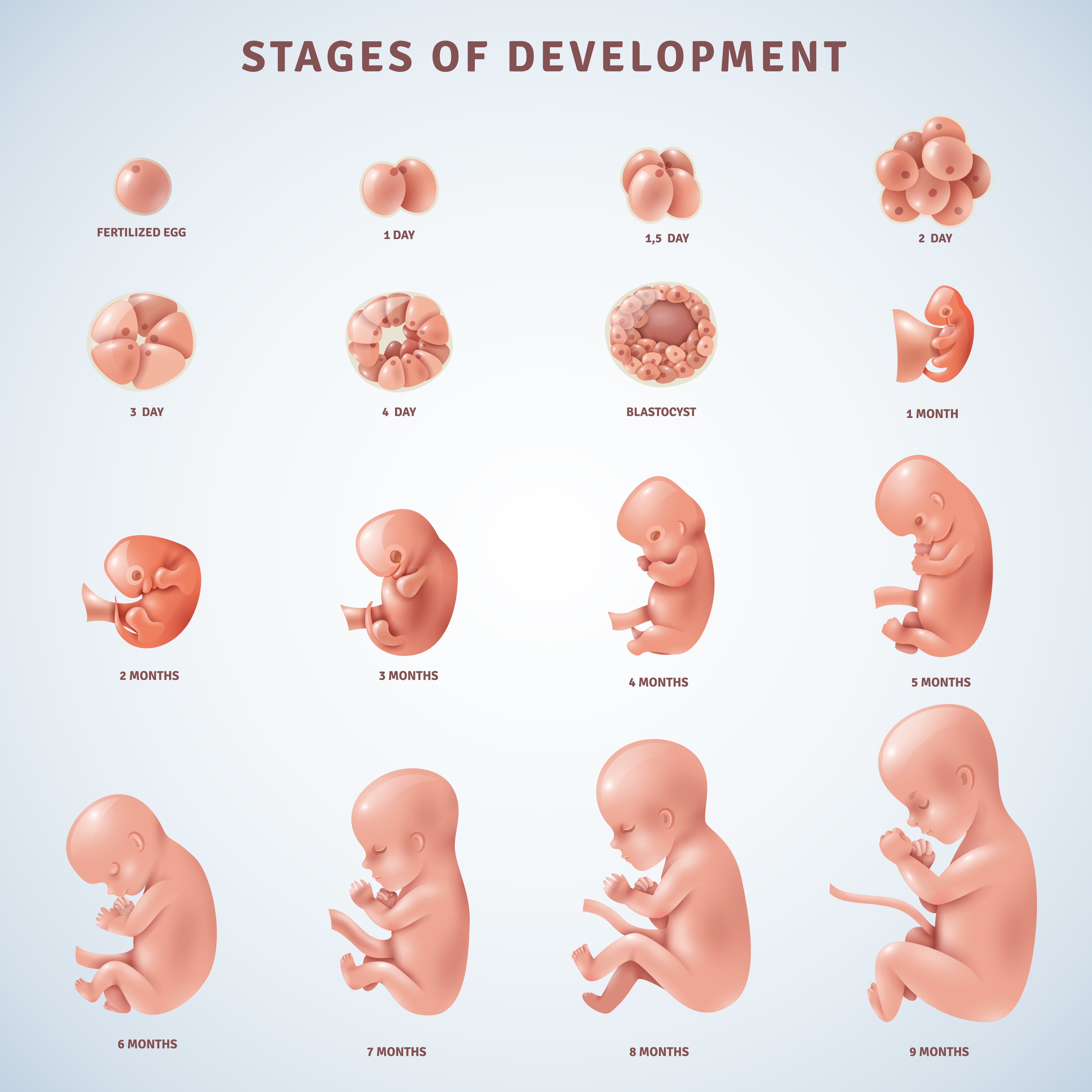 Source: bing.com
Source: bing.comThe moment a woman finds out she’s pregnant is one of the most exciting times in her life. The journey to motherhood is a miraculous and beautiful one, and it all starts with the development of the embryo. In this article, we’ll explain the different stages of baby embryonic development and all the amazing things that happen during this miraculous process.
Table of Contents
What is Baby Embryonic Development?
Baby embryonic development is the process by which a fertilized egg develops into a fully formed fetus. It starts with fertilization, when the sperm and egg unite and form a single cell, and ends around the eighth week of pregnancy. During this time, the embryo goes through several stages of development, each with its unique characteristics.
The Different Stages of Baby Embryonic Development
The stages of baby embryonic development include:
Cleavage Stage
Immediately after fertilization, the fertilized egg undergoes a process called cleavage. During this stage, the egg divides into two cells, then four, then eight, and so on, until it forms a ball of cells called a blastocyst. This process continues for about the first week of pregnancy.
Implantation Stage
Once the blastocyst reaches the uterus, it begins the process of implantation. This happens around the end of the first week or the beginning of the second week of pregnancy. During implantation, the blastocyst attaches to the lining of the uterus, and the outer cells of the blastocyst form the placenta, which will nourish and protect the developing embryo.
Gastrulation Stage
Around the third week of pregnancy, the gastrulation stage begins. During this stage, the cells of the blastocyst start to differentiate into the three germ layers: the endoderm, mesoderm, and ectoderm. These layers will eventually form all the organs and tissues in the body.
Neurulation Stage
Around the fourth week of pregnancy, the neurulation stage begins. During this stage, the neural plate forms, which will eventually become the brain and spinal cord.
Organogenesis Stage
Around the fifth week of pregnancy, the organogenesis stage begins. During this stage, the major organs and systems in the body start to form, including the heart, lungs, liver, and kidneys. This is a critical period in development, and exposure to certain toxins or drugs during this time can result in birth defects.
Fetal Stage
Around the eighth week of pregnancy, the embryonic period ends, and the fetal stage begins. At this point, the embryo is now called a fetus. During this stage, the fetus continues to grow and develop, and all the major organs and systems are in place. The fetus will continue to develop until it’s ready to be born.
What Happens During Baby Embryonic Development?
During baby embryonic development, an incredible number of changes happen in the body. Here are just a few of the amazing things that happen:
Cell Division
As we mentioned earlier, the fertilized egg undergoes rapid cell division during the cleavage stage. By the end of this stage, the fertilized egg has divided into a ball of cells called a blastocyst, which is made up of two cell types: the inner cell mass, which will eventually become the fetus, and the outer cells, which will become the placenta.
Formation of Major Organs and Systems
During the organogenesis stage, the major organs and systems in the body start to form. For example, the heart starts to beat, and the brain starts to develop. By the end of this stage, all the major organs and systems are in place.
Formation of the Placenta
During the implantation stage, the outer cells of the blastocyst form the placenta, which will nourish and protect the developing embryo. The placenta plays a crucial role in fetal development, providing the fetus with oxygen and nutrients and removing waste products.
Development of the Neural Tube
During the neurulation stage, the neural tube forms, which will eventually become the brain and spinal cord. This is a critical period in development, and exposure to certain toxins or drugs during this time can result in neural tube defects.
Conclusion
Baby embryonic development is a miraculous and beautiful process that results in the creation of a new life. Over the course of several weeks, a fertilized egg develops into a fully formed fetus, with all the major organs and systems in place. It’s amazing to think that all of this happens inside a woman’s body, without any conscious effort on her part. We hope this article has helped you understand the different stages of baby embryonic development and all the incredible things that happen during this miraculous process.
Frequently Asked Questions:
Q: What is baby embryonic development?
A: Baby embryonic development is the process by which a fertilized egg develops into a fully formed fetus.
Q: When does baby embryonic development start?
A: Baby embryonic development starts with fertilization, when the sperm and egg unite and form a single cell.
Q: What happens during baby embryonic development?
A: During baby embryonic development, an incredible number of changes happen in the body, including rapid cell division, formation of major organs and systems, and development of the neural tube.
Q: What is the fetal stage?
A: The fetal stage is the stage of development that starts around the eighth week of pregnancy, when the embryo is now called a fetus. During this stage, the fetus continues to grow and develop, and all the major organs and systems are in place.
Q: What is the role of the placenta in fetal development?
A: The placenta plays a crucial role in fetal development, providing the fetus with oxygen and nutrients and removing waste products.
